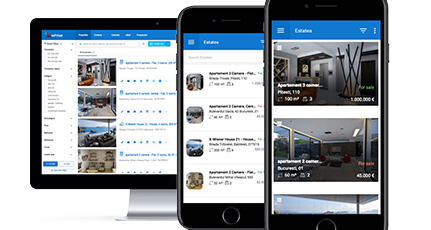In today’s hyper-connected and data-driven world, the ability to harness the power of data analytics has become imperative for businesses seeking to thrive in increasingly competitive markets. Business analytics, the process of examining large datasets to uncover hidden patterns, correlations, and insights, holds the key to unlocking new avenues of profitability and maintaining a competitive edge. From optimizing operations to understanding customer behavior, companies across industries are turning to business analytics to drive strategic decision-making and achieve sustainable growth.
Market intelligence and strategic decision-making:
Business analytics empowers businesses to gain a deeper understanding of market dynamics, enabling them to identify emerging trends, consumer preferences, and competitive threats. By analyzing vast amounts of market data, companies can anticipate shifts in demand, spot opportunities for innovation, and adapt their strategies accordingly. For instance, retail giants like Amazon leverage data analytics to track consumer buying patterns in real-time, enabling them to offer personalized recommendations and optimize inventory management, ultimately driving sales and profitability.
Enhancing operational efficiency:
Data analytics plays a crucial role in streamlining operations and optimizing processes across the entire value chain. By analyzing operational data, businesses can identify inefficiencies, bottlenecks, and areas for improvement. Whether it’s optimizing supply chain logistics, reducing production costs, or improving resource allocation, data-driven insights enable companies to make informed decisions that drive efficiency and reduce waste. For example, manufacturing companies use predictive analytics to forecast equipment maintenance needs, minimizing downtime and maximizing productivity.
Personalizing customer experiences:
In today’s era of personalized marketing, understanding customer behavior is paramount for driving engagement and loyalty. Data analytics empowers businesses to segment their customer base, identify individual preferences, and deliver targeted marketing campaigns tailored to specific demographics or personas. By analyzing customer interactions across multiple touchpoints, companies can gain valuable insights into purchasing behavior, preferences, and sentiment, enabling them to deliver personalized experiences that resonate with their audience. E-commerce platforms like Netflix leverage data analytics to recommend personalized content based on user viewing history, driving customer satisfaction and retention.
Mitigating risks and fraud:
Business analytics serves as a powerful tool for mitigating risks and detecting fraudulent activities, helping companies safeguard their assets and reputation. By analyzing historical data and identifying patterns of fraudulent behavior, businesses can implement predictive models and anomaly detection algorithms to flag suspicious transactions or activities in real-time. Financial institutions, for instance, leverage advanced analytics to detect fraudulent transactions, identify money laundering schemes, and prevent unauthorized access to sensitive data, thereby reducing financial losses and regulatory compliance risks.
Driving innovation and product development:
Business analytics fuels innovation by providing companies with actionable insights that inform product development and innovation strategies. By analyzing customer feedback, market trends, and competitor offerings, businesses can identify unmet needs and opportunities for innovation, guiding the development of new products or services that resonate with their target audience. Moreover, data analytics enables companies to iterate quickly, gather feedback, and refine their offerings based on real-time insights, ensuring that they stay ahead of the curve in rapidly evolving markets.
Optimizing pricing strategies:
Pricing decisions play a critical role in determining profitability and competitiveness in dynamic markets. Business analytics enables companies to analyze pricing trends, competitor pricing strategies, and customer willingness to pay, helping them optimize pricing strategies for maximum profitability. By leveraging pricing optimization algorithms and dynamic pricing models, businesses can adjust prices in real-time based on demand fluctuations, competitor actions, and market conditions, thereby maximizing revenue and market share.
What industries needs the most business analysis for increased performance and profitability
As of 2024, several industries are increasingly recognizing the importance of business analytics to gain insights, make informed decisions, and stay competitive in the ever-evolving market landscape. Here are some of the top industries that heavily rely on business analytics:
- Retail and eCommerce – to understand consumer behavior, optimize pricing and promotions, manage inventory effectively, and personalize customer experiences.
- Finance and banking – to manage risk, detect fraud, and improve operational efficiency. Banks utilize analytics for credit scoring, fraud detection, customer segmentation, and regulatory compliance.
- Healthcare – to improve patient outcomes, enhance operational efficiency, reduce costs, analyze patient data, optimize healthcare delivery, and improve clinical decision-making.
- Manufacturing – to optimize production processes, manage supply chains, and improve product quality.
- Telecommunications – to improve customer service, optimize network performance, and drive revenue growth.
- Technology and IT services – to improve product development, enhance customer support, and drive innovation.
- Hospitality and Tourism – to optimize revenue management, enhance guest experiences, and improve operational efficiency.
- Energy and Utilities – to optimize resource management, improve grid reliability, and enhance sustainability efforts.
- Transportation and Logistics – to optimize route planning, manage fleet operations, and improve supply chain visibility.
- Insurance – to assess risk, price policies accurately, and enhance customer engagement. Insurers leverage analytics for underwriting, claims processing, and fraud detection.
How can Roweb help your company with business analytics
- Data collection – We collect the relevant data for analysis.
- Data exploration – We filter & analyze data to identify your business needs.
- Data visualization – Transform raw data into visually compelling insights.
- Data modeling – We create AI and machine learning models to process your data.
- Automated frameworks – Creation of automatic frameworks capable of using models in real time.
- Data monitoring – Solutions to help monitor and analyze data: Grafana, Kibana, Prometheus.
Business analytics products:
We’re preparing to launch soon several intelligent software designed by our Data Analytics team so customers can interact live on the platform with our specialist. We are also going to offer our customers the opportunity to process their data and test the usefulness of our products.

Do you want to be among the first to know when these products will be officially launched on the market? Leave us your contact information and we’ll get back to you with news about the launch of these products.















































